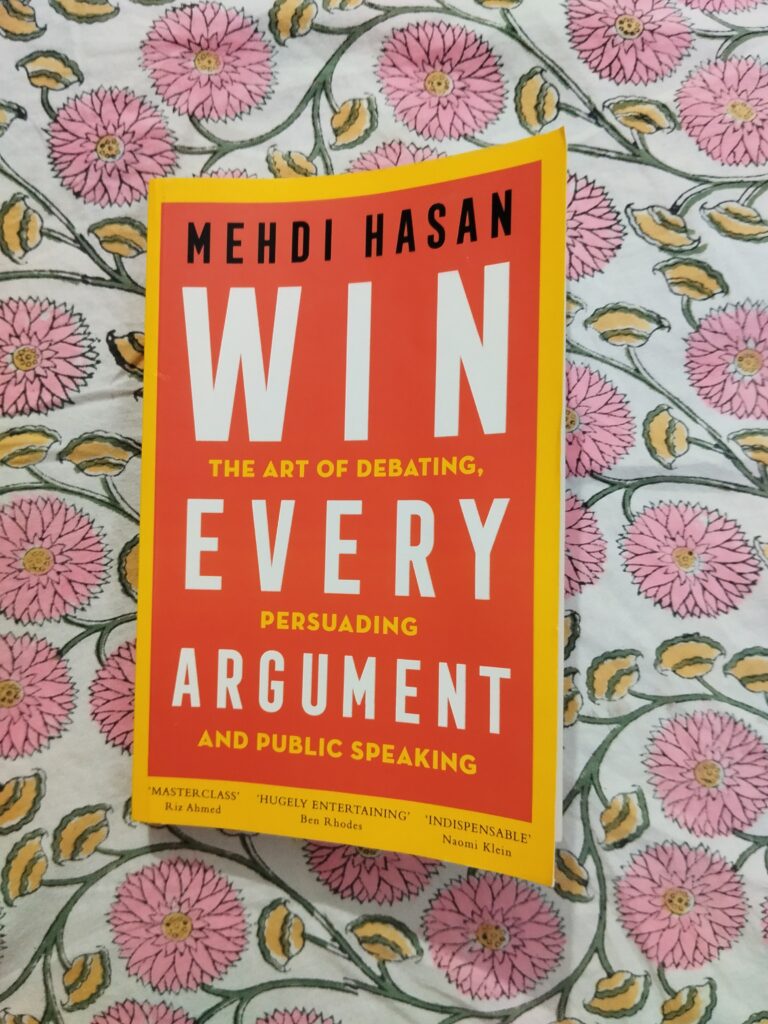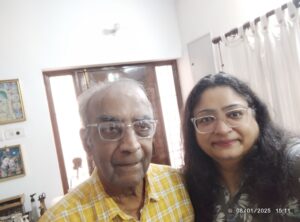Mehdi Hasan says that his book ‘Win Every Argument – The Art of Debating, Persuading and Public Speaking’ draws on his experiences debating with former British PM Boris Johnson, former Pakistani PM Benazir Bhutto and interviewing some of the biggest names in politics, finance, and Hollywood.
The author Mehdi Hasan is an award-winning British-American journalist. He is the host of ‘The Mehdi Hasan Show’ on MSNBC and NBC’s streaming channel Peacock. Hasan is a former columnist and podcaster at ‘The Intercept’, a former presenter at Al Jazeera English, and his op-eds have also appeared in the New York Times and the Washington Post.

According to a study conducted by Microsoft, the average human “loses concentration after eight seconds.” So speakers must avoid rote remarks, empty platitudes, and tired cliches.
In the introduction, the author takes us back to Ancient Greece in 428 BCE and asks the reader the question “What would you do if tens of thousands of lives depended on you winning an argument?
The key to winning over an audience is understanding who they are, where they are coming from, what they want, and what they need to hear in order to be persuaded. Anytime an audience is present, you cannot ignore them or take them for granted. They are the judge and jury. They are the ones who you are trying to convince, persuade, and bring on board with your arguments.
Amidst the Peloponnesian War, Athens and Sparta were in conflict, while the city of Mytilene saw an opportunity. The people wanted to throw off Athenian rule and free themselves. The Athenians decided to take action against Mytilene and hastily voted to execute all the men in Mytilene and enslave the women and children. Soon, they were second-guessing themselves. Two orators, Cleon and Diodotus were chosen to debate the issue in the assembly. While Cleon stuck to the original punishment, Diodotus spoke of free and open debate, warning his audience against ‘haste’ and ‘passion’, which he said were the two biggest obstacles to good counsel. Diodotus knew his audience and what they needed to hear. And he beat Cleon. The assembly voted again and decided in Diodotus’s favor. Thousands of innocent lives were saved all thanks to an argument made in Athens.
The first thing to do is to know your audience and tailor what you say so that it resonates with them. Your tone of voice, volume – everything has to be adjusted according to the audience.
Here’s how to grab the attention of your audience:
- Start with a strong opening line.
- Start with a question
- Start with a story
Connect with them. To connect with your audience, you want them to relate to you, not just your arguments.
- Make eye contact
- Heap praise
- Get personal (share a personal story or anecdote)
Hasan quotes Dale Carnegie, “When dealing with people, let us remember we are not dealing with creatures of logic. We are dealing with creatures of emotion.”
So, if you want to learn more about how to enthrall an audience, pick up this book. It is divided into four parts and includes numerous examples, a notes section, and an index, as well. The 317-page book is intended as a practical guide for trial lawyers, corporate executives, political candidates, teachers and lecturers, students, and even spouses!
It is available wherever books are sold.
I thank Pan Macmillan India for the review copy.












One Response
I have stopped arguing. I encourage discussion and debate among my students. This book may help there too, I’m sure.